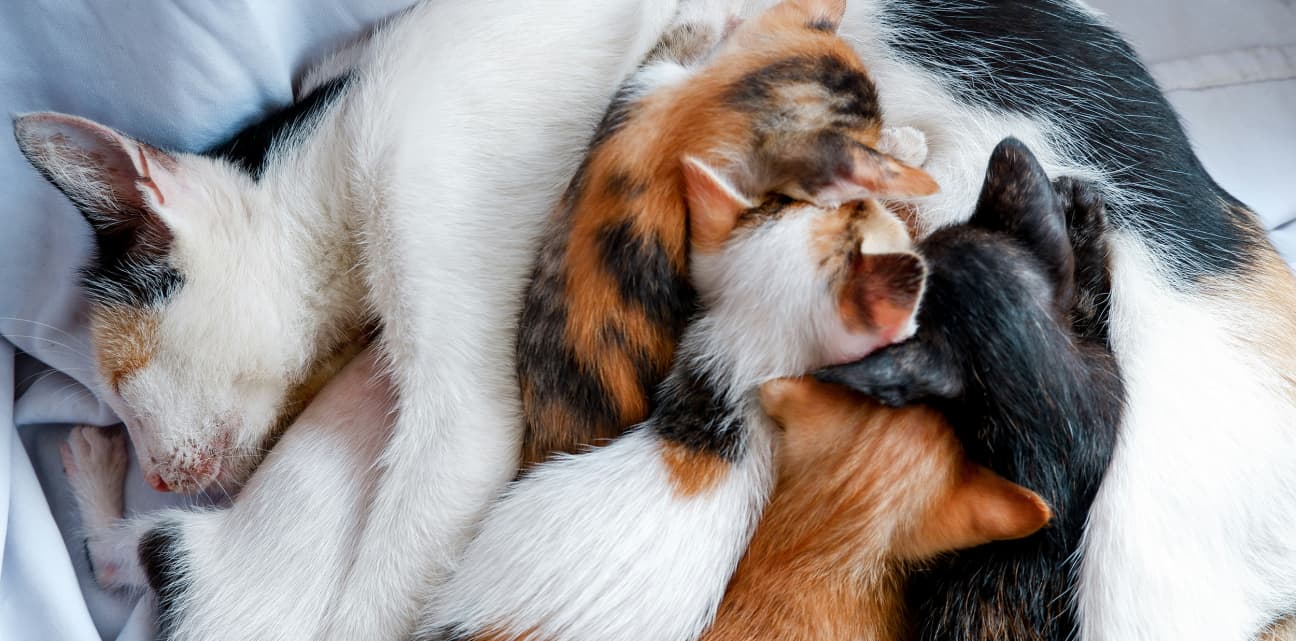One Vaccine at a Time: Protecting Pets from Preventable Illness
Vaccines aren't just for puppies and kittens - they're a lifelong tool to protect your pet from serious, often fatal diseases. Learn why staying current is one of the most important things you can do for your pet's health.

What's on this page:
Why Pet Vaccines Matter - At Every Stage of Life
Vaccines aren't just a "puppy or kitten" thing - they're a lifelong tool to keep your pet safe, healthy, and happy. Whether you've got a bouncy new pup, a curious adult cat, or a sweet senior dog, staying current on vaccines is one of the best things you can do for their long-term health. Regular vaccinations can help prevent serious illnesses that not only cause suffering but can also shorten a pet's lifespan. Keeping up with vaccines is a simple way to support a longer, healthier life for your pet.
Protection from Dangerous Diseases
Vaccines help prevent serious, often fatal illnesses like parvovirus, distemper, feline leukemia, and rabies. These aren't rare or outdated threats - they're still very real, especially in unvaccinated pets or areas with low vaccine rates.
- Parvovirus and distemper: These viruses can kill unvaccinated puppies within just a few days. They are aggressive, highly contagious, and extremely difficult (and expensive) to treat once symptoms appear. Even with intensive care, survival isn't guaranteed.
- Feline leukemia virus (FeLV): A leading cause of death in cats. It weakens the immune system, causes chronic illness, and often leads to early death. There's no cure - only prevention.
- Rabies: 100% fatal once symptoms appear in both animals and humans. It's a zoonotic disease, meaning it can be passed from pets to people through bites or saliva. The virus attacks the nervous system and has no treatment once symptoms begin. Vaccination is the only protection.
Common Vaccine Myths
Despite their benefits, misconceptions about vaccines are rampant. Here are some common myths we hear:
-
Myth: My pet stays inside.
Even indoor pets escape. Bats and other wildlife get into homes. Accidents happen when you least expect them. -
Myth: They had shots when they were little.
Immunity fades. Booster vaccines are crucial for maintaining protection throughout a pet's life. Boosters are typically administered during annual exams, which also provide a great opportunity to detect early signs of illness and ensure your pet remains healthy throughout every stage of life. -
Myth: I can just buy vaccines online.
Would you inject yourself with something you got from a farm supply store? Probably not. The same caution should be taken with your pets. Vaccines must be stored, handled, and administered correctly - otherwise they can be ineffective or even dangerous.
Why One Vaccination Isn't Enough for Puppies & Kittens
Puppies and kittens need a series of vaccines because their immune systems are still developing. Maternal antibodies (passed from their mother) can interfere with early vaccinations, so vets recommend a series spaced 3-4 weeks apart - starting at 6-8 weeks and continuing through 16-20 weeks.
Completing the entire vaccine series ensures full protection, whereas skipping doses leaves your pet exposed at the worst possible time - when they're most curious and exploring.

The Risks of Delaying or Skipping Vaccines
We understand that life gets busy. But delaying or skipping vaccines can have serious consequences:
- Your pet faces an increased risk of exposure to and transmission of preventable diseases. Without proper immunization, they are more vulnerable to serious and potentially fatal illnesses.
- There may be legal consequences if your pet bites someone and is not vaccinated for rabies. Rabies vaccines are legally required for dogs—and for cats in most states. If your pet isn't current and is involved in a bite or wildlife exposure, it could trigger a mandatory quarantine or, in severe cases, euthanasia—especially if the other animal can't be tested and there's no proof of your pet's vaccination.
Rabies vaccines are legally required for dogs - and for cats in most states. If your pet isn't current and there's a bite incident or contact with wildlife, it could trigger a mandatory quarantine or, in serious cases, euthanasia - especially if the other animal can't be tested and there's no proof of vaccination.
Even if a vaccinated pet bites someone, you are required to report it, and the pet may be placed under quarantine. Many boarding facilities, groomers, training programs, and even some travel accommodations require proof of up-to-date vaccinations. Staying current keeps your pet eligible for these services - and helps protect every pet in shared environments.
Vaccines are also required by most animal shelters and rescue groups before adoption or fostering to protect pets in communal settings.
What About Over-the-Counter Vaccines?
As mentioned above, store-bought vaccines may not be safe or effective. At our clinic, we always use properly stored, professionally handled vaccines tailored to your pet's lifestyle, age, and health history.
It's not one-size-fits-all care - it's personalized protection
Every pet is different. We customize vaccination plans based on your pet's age, health, lifestyle, and environment. Whether they frequent the dog park, stay home, or travel with you, we tailor care to meet their specific needs - not a generic checklist.
Core vs. Lifestyle Vaccines - What Does Your Pet Need?
Some vaccines are considered "core" and are recommended for all pets, like rabies and distemper. Others, such as Bordetella (kennel cough), Lyme, or feline leukemia, may be recommended based on your pet's activities, environment, or exposure risk.
We'll help you decide what's necessary based on your pet's unique lifestyle. While no medical procedure is without risk, vaccine side effects are typically mild and temporary, such as slight sleepiness or soreness at the injection site. Serious reactions are extremely rare, and we are always here to monitor and support your pet throughout the process.
Dog & Cat Vaccination Schedules
Dog Vaccinations
Core Vaccines
Must-have: Disease is preventable if core vaccine is administered by a licensed veterinary professional.
- 8 Weeks: Distemper
- 12 Weeks: Distemper, Leptospirosis
- 16 Weeks: Distemper, Leptospirosis, Rabies
- Annual Examinations: Distemper, Leptospirosis, Rabies
Lifestyle Vaccines
Vaccine does not provide complete prevention of disease but risk and spread of disease is lowered when vaccine is administered by a licensed veterinary professional.
- 8 Weeks: Bordetella
- 12 Weeks: Influenza, Lyme
- 16 Weeks: Influenza, Lyme
- Annual Examinations: Bordetella, Influenza, Lyme
Cat Vaccinations
Core Vaccines
Must-have: Disease is preventable if core vaccine is administered by a licensed veterinary professional.
- 8 Weeks: Distemper
- 12 Weeks: Distemper
- 16 Weeks: Distemper, Rabies
- Annual Examinations: Distemper, Rabies
Lifestyle Vaccines
Vaccine does not provide complete prevention of disease but risk and spread of disease is lowered when vaccine is administered by a licensed veterinary professional.
- 8 Weeks: Leukemia
- 12 Weeks: Leukemia
- 16 Weeks: Leukemia
Bottom Line?
Vaccines are one of the easiest ways to prevent illness, heartbreak, and high vet bills. If your pet is due or overdue, we're here to help. Send us a message, give us a call, or stop by. Our team is happy to walk you through exactly which vaccines your pet may need to stay protected for life.
